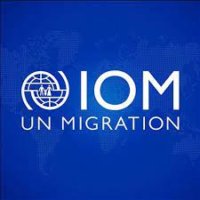General Background of Project or Assignment:
The number of forcibly displaced people has reached 100 million people in 2022 – including refugees and internally displaced persons – the highest number ever recorded (UNHCR, 2022). Evidence suggests that the forcibly displaced often have higher and specific vulnerabilities compared to hosting populations. On average, displaced persons remain in displacement for longer than 5 years. More than 80% of forced displacement happens between or within low- and middle-income countries, while countries with fragile contexts host 64% of all refugees and IDPs (OECD, 2022a). These contexts are often characterised by low financial and infrastructural capacity to adequately provide social and economic prospects. Opportunities for sustainable solutions of return and resettlement to third countries are few and not keeping up with the upward trend of forced displacement – re-enforcing the importance of strengthening the capacity required for local socio-economic inclusion to occur.
The reality of forced displacement across the world has pushed the global community to change the way it works, as humanitarian, development and peace actors – key actors in facilitating solutions – have often worked in silos, with separate objectives in addressing forced displacement. Fundamentally, it has become necessary to shift operations from an emergency management approach to an approach where self-reliance, local resilience and development are central. Under this context, United Nations members and agencies convened in Istanbul, Turkey in 2016, to establish a New Way of Working (NWoW) – paving the way for the humanitarian-development-peace nexus (HDP nexus) concept. In 2019, UN member states adopted the Global Compact on Refugees (GCR), endorsing the idea that “humanitarian and development actors will work together from the outset of a refugee situation and in protracted situations”. Such endorsement emphasises the importance to scale development responses to forced displacement. The UN Secretary General’s Action Agenda on Internal Displacement (UN, 2022) further highlights that the response to forced displacement remains primarily humanitarian in nature, and requires more early and predictable engagement by development actors.
In 2019, the OECD Development Assistance Committee (DAC) members agreed on a legal document outlying its Recommendation on the HDP nexus, aiming to promote more coherent action among the world’s leading donors of humanitarian, development and peace programmes in fragile and conflict contexts. In 2019, the OECD’s International Network on Conflict and Fragility (INCAF), a subsidiary network of the DAC, also issued a Common Position on Supporting Comprehensive Responses in Refugee Situations. The principles underlying the Common Position notably highlight the importance of incorporating a humanitarian-development-peace intervention and the support of refugee self-reliance from the outset of a crisis. In its 2022 interim progress report on the implementation of DAC Recommendation on the HDP Nexus, the OECD recommended that “joined-up approaches to planning and programming agreed by all key stakeholders in a given context, would meaningfully advance coherence and complementarity” (OECD, 2022b).
There has been much discussion on how to operationalise the DAC recommendation on the HDP nexus, and in fact, the NWoW and the HDP Nexus have been catalysts for the creation of new financing instruments (IASC, 2021; Khaled, 2021; Vernon, 2021; WHO, 2021). These instruments include the World Bank’s regional sub-window for refugees and host communities, a financing instrument to support low-income refugee hosting countries under IDA18 and IDA19 replenishments, as well as the Global Concessional Financing Facility (GCFF), which provides support on concessional terms to middle-income countries (MICs). Some members of the Development Assistance Committee (DAC) are already changing how they fund programmes (Gagnon and Rodrigues, 2020; Hesemann et al., 2021). Several new development-led responses to protracted displacement have also been identified across different forced displacement contexts (Betts et al., 2016).
But the term “operationalise” raises several concerns, and questions therefore abound:
- What does operationalise mean? What objectives should be prioritised? What sectors and intervention areas make the most sense for long-term thinking?
- What actors need to be mobilised under different objectives? Whose role is it to do what?
- How can humanitarian and peace actors come together to engage into more long-term thinking, and sustainability for forcibly displaced populations and host countries? How can development actors engage more in humanitarian contexts from the beginning of a displacement crisis?
- How can actors collectively address crises more coherently? What does success in implementing the HDP Nexus objectives look like in an ideal world?
- What is meant by development? How can success of an HDP nexus approach be measured?
The starting point is that each context will require a different approach, and objectives – based on feasibility and projected impact.
The consultant should be deeply familiar with the concepts of forced displacement, the HDP nexus, and operationalisation in contexts of forced displacement. Knowledge about related forced displacement policies and practises is essential. Specific qualifications and experience:
Academic qualifications: MA/MSC, or higher, degree in Development Studies, Economics, Social Sciences or similar.
Experience:
At least 5-10 years of experience in any of the following fields:
- Forced displacement field experience, preferably in development programmes
- Applied policy research on international development desirable
- Consultancy services to bilateral or multi-lateral development actors in the areas of evaluation, empirical data analysis, programme design
Desired specific skills:
- Sound written English language skills and track record in drafting reports for organisations / clients;
- Operational experience in forced displacement settings, preferably in development programmes;
- Demonstrated ability to translate development policies into tangible programme interventions
This is a Home-based Individual Consultancy
How to apply
To apply please use below link:
